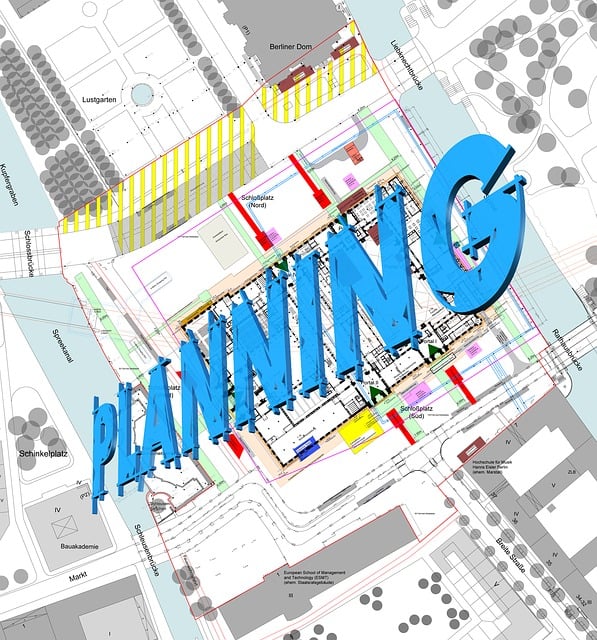Event Planning for Local Businesses is a strategic approach that integrates regional culture and character into corporate events, enhancing the local identity and creating distinctive experiences. By leveraging local traditions, architecture, and culinary delights, and by incorporating entertainment that reflects the community's essence, these events gain a unique flavor that sets them apart from standard corporate gatherings. This approach not only adds cultural depth but also demonstrates commitment to the local community, leaving attendees with lasting impressions. Moreover, using local vendors for essential services supports the economy and fosters a symbiotic relationship that benefits all stakeholders. Event planning that focuses on place and people is crucial for leaving a memorable impact through networking, collaboration, and the sharing of best practices among local enterprises. Additionally, successful event planning involves meticulous venue selection based on space requirements, attendee demographics, and thematic alignment. It also demands attention to logistics such as reliable transportation, comfortable accommodations, and on-site coordination to ensure a seamless experience. Post-event analysis using attendance rates, participant feedback, and social media engagement is essential for measuring success, with the goal of continuous improvement and higher satisfaction rates in future events. This data-driven approach ensures that Event Planning for Local Businesses remains dynamic and responsive to the needs and preferences of the local audience, thereby aligning with business objectives and enhancing the overall impact of corporate events.
navigating the intricate landscape of corporate event coordination, local businesses can elevate their gatherings by infusing local character and tailoring experiences. This article delves into the nuances of event planning for local businesses, emphasizing how to select strategic venues, master logistics, and measure success post-event. By understanding the significance of local flair and thematic alignment, event planners can create truly engaging events that resonate with attendees. From selecting the perfect backdrop to analyzing feedback, these strategies ensure every corporate event is a testament to the host locale’s unique charm, fostering an environment of connection and innovation.
- Leveraging Local Flair in Corporate Event Planning for Local Businesses
- The Importance of Tailored Themes and Activities for Engaging Local Events
- Strategic Venue Selection: Finding the Perfect Backdrop for Your Corporate Gathering
- Mastering Logistics: Transportation, Accommodations, and On-site Coordination for Local Business Events
- Measuring Success: Post-event Analysis and Feedback for Continuous Improvement in Local Corporate Event Planning
Leveraging Local Flair in Corporate Event Planning for Local Businesses

When local businesses seek to host corporate events, integrating the region’s unique culture and character can significantly enhance the experience for attendees and align the event with the company’s identity. Event planning for local businesses offers a prime opportunity to showcase local flair by selecting venues that reflect the area’s architectural or artistic heritage, incorporating regional cuisine into catering choices, and curating entertainment that resonates with the community’s vibe. This not only enriches the event but also reinforces the company’s commitment to its locale. By thoughtfully weaving in elements unique to the destination, planners can create a memorable occasion that stands out from generic, one-size-fits-all gatherings.
Furthermore, leveraging local resources not only adds authenticity but can also be cost-effective and logistically sound. Collaborating with local vendors ensures fresh, high-quality food and beverages, while engaging with community talent for performances or decorations infuses the event with a genuine touch. This approach also supports the local economy, creating a virtuous cycle where businesses and the community thrive together. In doing so, corporate events become more than just business engagements; they become a celebration of place, people, and shared experiences that leave a lasting impression on all involved.
The Importance of Tailored Themes and Activities for Engaging Local Events

When local businesses seek to make a memorable impact through corporate events, event planning that incorporates tailored themes and activities proves pivotal. These bespoke elements not only resonate with the attendees but also reflect the unique character of the host community. By understanding the local culture, preferences, and interests, planners can craft experiences that are both relevant and engaging. This level of customization enhances audience participation, fostering a sense of belonging and connection to the event. Moreover, such tailored events effectively showcase the businesses’ commitment to the local area, demonstrating an understanding and respect for the community’s identity. This authentic approach to event planning for local businesses can elevate their profile within the community and create lasting positive associations with their brand.
Incorporating themes and activities that align with local traditions, holidays, or even current events ensures that the corporate event feels like a natural extension of the area’s spirit. This relevance increases the likelihood of participant investment, as the content resonates on a more personal level. Additionally, such events provide a platform for local businesses to network, collaborate, and share best practices, which can lead to mutually beneficial partnerships and opportunities. By investing in event planning that honors the local context, businesses not only engage more effectively with their immediate environment but also position themselves as integral and supportive members of the community.
Strategic Venue Selection: Finding the Perfect Backdrop for Your Corporate Gathering

When planning a corporate event, strategic venue selection is paramount to ensure the setting complements and enhances the intended atmosphere and objectives of the gathering. Event planners for local businesses must consider factors such as the event’s size, purpose, and audience when scouting locations. The venue should not only accommodate attendees comfortably but also reflect the brand’s ethos or the theme of the event. Proximity to participants, accessibility, and amenities are crucial considerations that can influence the success of the event. Additionally, the ambiance of the space can set the tone for engagement; a well-chosen venue can provide a backdrop that stimulates attendees, fosters networking, and creates an environment conducive to business objectives.
Local businesses often seek venues that offer versatility in terms of layout and technology integration. This adaptability allows event planners to tailor the space to various activities, from keynote speeches to interactive workshops. The right venue can transform a simple meeting into an immersive experience, leaving a lasting impression on all attendees. Therefore, careful selection of the site, considering both logistical and aesthetic aspects, is essential for event planners aiming to execute successful corporate events that resonate with local audiences.
Mastering Logistics: Transportation, Accommodations, and On-site Coordination for Local Business Events

To orchestrate a seamless corporate event, local businesses must master logistics that encompass transportation, accommodations, and on-site coordination. Effective event planning for local businesses begins with meticulously arranging transportation for attendees, which includes not only shuttle services from nearby airports but also ensuring reliable and timely options for those traveling within the city. This attention to detail ensures that participants can arrive at the venue stress-free and ready to engage in the event’s activities.
Once participants are on-site, accommodations must be comfortably arranged, with considerations given to the accessibility of facilities, the quality of catering services, and the overall guest experience. The layout of the venue should facilitate networking among attendees while also accommodating the technical requirements of presentations and workshops. On-site coordination requires a keen eye for detail and the ability to anticipate and swiftly address any unforeseen challenges that may arise. By leveraging local resources effectively, businesses can create an event environment that is both welcoming and conducive to productive collaboration, making each event a testament to efficient and thoughtful event planning for local businesses.
Measuring Success: Post-event Analysis and Feedback for Continuous Improvement in Local Corporate Event Planning

In the realm of local corporate event planning, measuring success post-event is a critical component for continuous improvement. Event planners must employ robust analytics to assess various metrics that reflect audience engagement, such as attendance rates, participant feedback, and social media interactions. By meticulously analyzing these data points, planners can identify strengths and areas for enhancement, ensuring future events are even more impactful for local businesses. This process not only validates the effectiveness of the event but also provides valuable insights into audience preferences and expectations.
Furthermore, the integration of feedback mechanisms, both real-time and post-event surveys, allows attendees to voice their experiences directly. This feedback is instrumental in understanding the event’s impact on participants and stakeholders. Event planners should utilize this information to refine details such as logistics, content relevance, and vendor performance, thereby elevating the overall quality of event planning for local businesses. By continuously analyzing feedback and adapting strategies accordingly, local corporate events can become more effective in achieving their objectives, ultimately leading to higher satisfaction and better outcomes for all involved.
Effective event planning for local businesses is a multifaceted endeavor that demands a keen understanding of regional nuances, meticulous coordination, and a strategic approach to logistics. By infusing local flavor into corporate events and crafting tailored themes and activities, event planners can foster a deeper connection with attendees, enhancing engagement and experience. Strategic venue selection plays a pivotal role in setting the stage for a successful gathering, while mastering logistics—from transportation to on-site management—ensures seamless execution. Post-event analysis and soliciting feedback are crucial for measuring success and driving continuous improvement in event planning practices. Local businesses that embrace these strategies position themselves to host memorable and impactful events that resonate with their audience and achieve their objectives.



